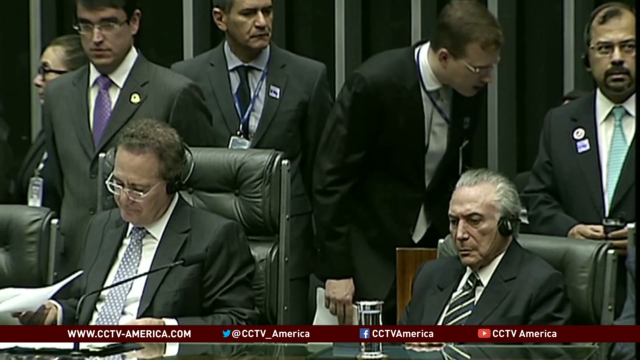In Brazil, a number of powerful families run much of the country. The question is whether they can carry over that influence to the next administration when so many Brazilians are calling for reform at this week’s elections.
CCTV America’s Paulo Cabral reports.
Follow Paulo Cabral on Twitter:@paulonumundo

When crowds took the streets in mass protests last year, there was one thing they all shared: the demand for reform in Brazilian politics.
One big obstacle stands in the way — Brazil’s entrenched oligarchs. Some of these powerful families can trace the beginnings of their billion-dollar fortunes back to colonial times. Politics in Brazil is still largely family business-particularly in the country’s poor northeastern countryside. In many areas, having a well-known family name is like a logo for successful consumer brand. Having a recognized name is half the battle in securing a parliament seat. Another obstacle is inertia. Research by the anti-corruption NGO, Transparencia Brasil, shows that at the time of voting people stick to tradition.
The survey shows that more than 40 percent of the members of the Chamber of Deputies and over 60 percent of the senators elected in the last two elections had family connections to other politicians.
Natia Paiva from Transparencia Brasil says,”most of these politicians control a lot of media outlets such as TV stations, radio stations and local newspapers. So they can use this all in their favor as well. Just to give you an example, if you look to president of the the chamber of deputies of Brazil and the president of the Senate, you’ll see that they are both from strong political clans from the north east of Brazil.”
Powerful families that become political dynasties can be found in many countries, but many analysts here express concern that Brazil’s wealthy elite may have acquired too much power. When Brazilians cast ballots for their preferred candidates, the question this year is whether they will also be voting for reform.
 CGTN America
CGTN America
